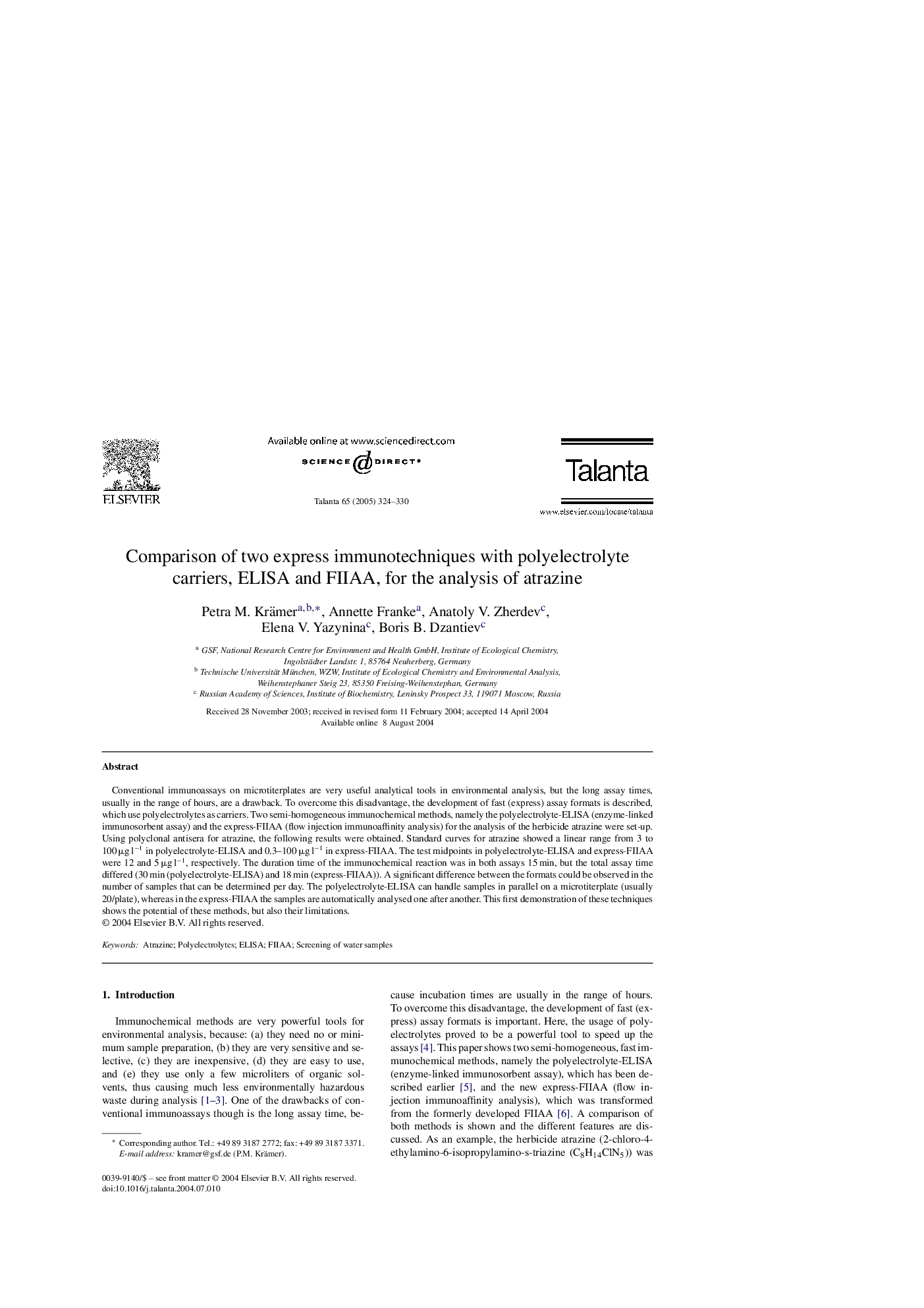| Article ID | Journal | Published Year | Pages | File Type |
|---|---|---|---|---|
| 10560049 | Talanta | 2005 | 7 Pages |
Abstract
Conventional immunoassays on microtiterplates are very useful analytical tools in environmental analysis, but the long assay times, usually in the range of hours, are a drawback. To overcome this disadvantage, the development of fast (express) assay formats is described, which use polyelectrolytes as carriers. Two semi-homogeneous immunochemical methods, namely the polyelectrolyte-ELISA (enzyme-linked immunosorbent assay) and the express-FIIAA (flow injection immunoaffinity analysis) for the analysis of the herbicide atrazine were set-up. Using polyclonal antisera for atrazine, the following results were obtained. Standard curves for atrazine showed a linear range from 3 to 100 μg lâ1 in polyelectrolyte-ELISA and 0.3-100 μg lâ1 in express-FIIAA. The test midpoints in polyelectrolyte-ELISA and express-FIIAA were 12 and 5 μg lâ1, respectively. The duration time of the immunochemical reaction was in both assays 15 min, but the total assay time differed (30 min (polyelectrolyte-ELISA) and 18 min (express-FIIAA)). A significant difference between the formats could be observed in the number of samples that can be determined per day. The polyelectrolyte-ELISA can handle samples in parallel on a microtiterplate (usually 20/plate), whereas in the express-FIIAA the samples are automatically analysed one after another. This first demonstration of these techniques shows the potential of these methods, but also their limitations.
Keywords
Related Topics
Physical Sciences and Engineering
Chemistry
Analytical Chemistry
Authors
Petra M. Krämer, Annette Franke, Anatoly V. Zherdev, Elena V. Yazynina, Boris B. Dzantiev,
